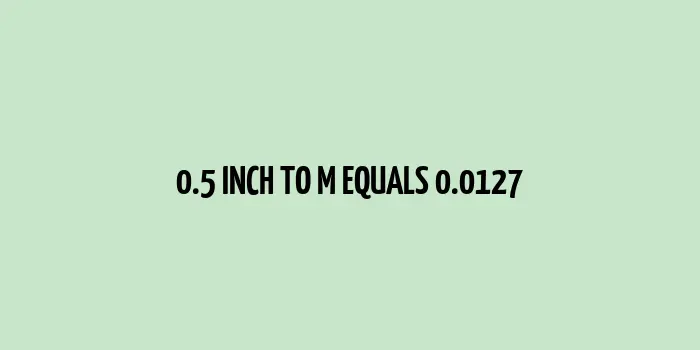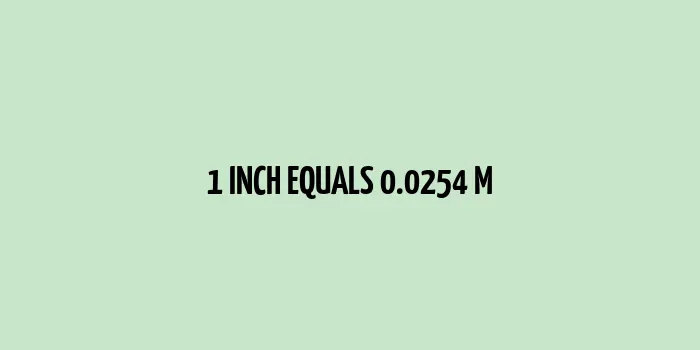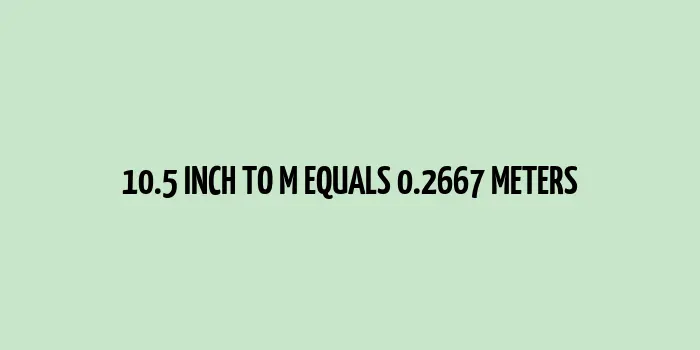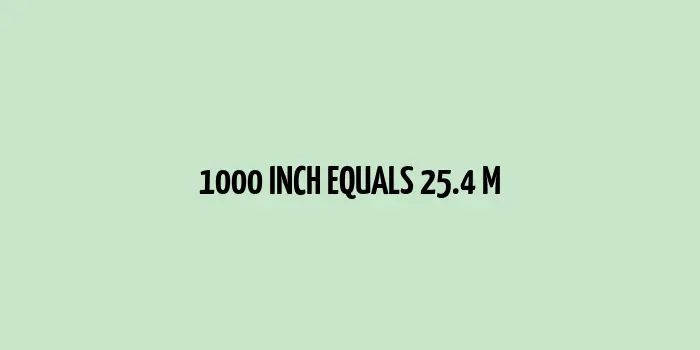100 inch to m (Inches to Meters)
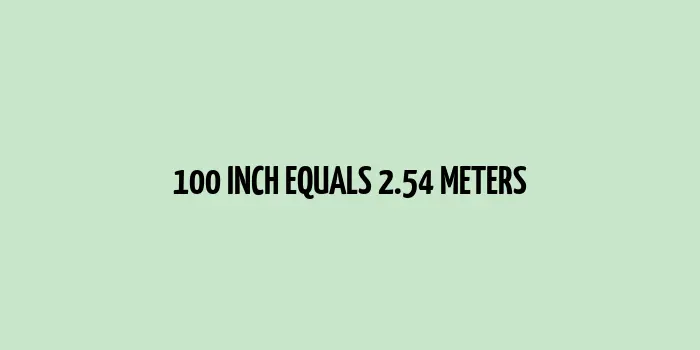
Let us understand the process of converting 100 inch to m
100 inch is equal to 2.54 meters.
When you need to convert 100 inches to meters, the exact measurement is crucial, especially in various applications such as construction, design, and scientific computations. Inch to meter conversions are often necessary because many industries and professions around the world use the metric system.
To convert inches to meters, you multiply the number of inches by 0.0254, since there are 0.0254 meters in one inch. So, for 100 inches: [ 100 \text{ inches} \times 0.0254 = 2.54 \text{ meters} ]
Why Converting Inches to Meters is Important
Globally, the metric system is the standard unit of measurement, preferred for its simplicity and widespread use. In many technical fields like engineering and science, reporting measurements in meters is not only a best practice but often a requirement. For instance, in construction, using the metric system can help avoid costly errors. A report indicated that improper conversions cost the construction industry millions of dollars annually.
Here’s How It Works
Conversions might seem tedious at first, but they are straightforward once you understand the basic principles. As mentioned, to convert inches into meters, you use the conversion factor 0.0254. This factor is derived from the fact that one inch equals exactly 2.54 centimeters, and with 100 centimeters making a meter, it is simply a division by 100.
Think about it this way: if you are building a garden shed and you have a tape measure that only shows inches, you can easily convert those measurements to meters for easier visualization and to align with global standards.
Example Calculation
Consider another example: If you have a piece of wood that is 200 inches long, converting that to meters is just as simple: [ 200 \text{ inches} \times 0.0254 = 5.08 \text{ meters} ]
You can see how quickly and easily you can convert inches to meters and make your data more universally understandable.
External Resource for More Information
For a deep dive into how these conversions impact various fields, you can check out this comprehensive Conversions and Measurements Guide.
FAQ
1. How many meters is 1 inch? An inch is equivalent to 0.0254 meters.
2. How do you convert inches to meters manually? To convert inches to meters manually, multiply the number of inches by 0.0254.
3. Why do we use the metric system? The metric system is used because it’s a universal system that makes scientific calculations simpler.
4. Are there tools available online to convert inches to meters? Yes, various online tools and calculators can help you quickly convert inches to meters.
Conclusion
Converting 100 inches to meters is a straightforward calculation that yields 2.54 meters. This conversion is essential for standardizing measurements across different regions and industries. Understanding and using these conversions ensures accuracy and efficiency in your projects. Make sure to remember that 1 inch equals 0.0254 meters, and you will have the precision you need for any project requiring metric measurements.
By using simple conversion methods, embracing the metric system becomes easier and more intuitive, making it a valuable skill in both personal and professional settings.
